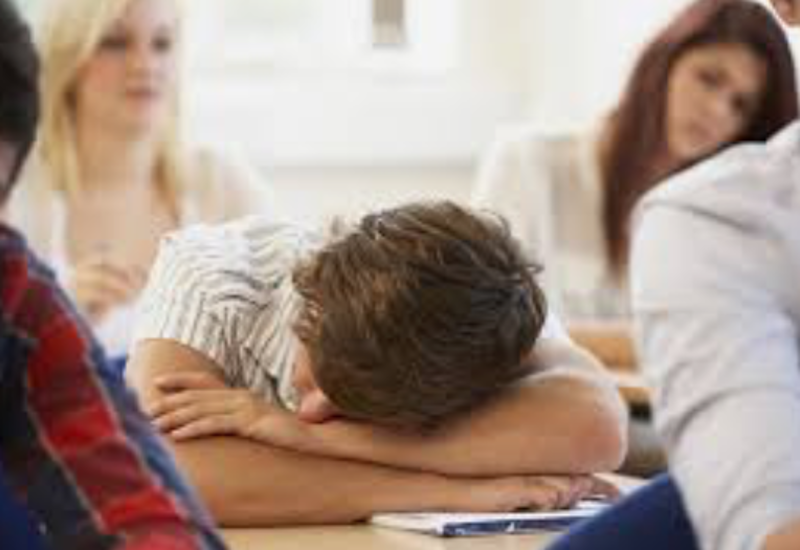Young and Sleep Deprived
Sleep deprived has become most high schoolers’ resting state.
December 11, 2020
Sleep deprived has become most high schoolers’ resting state. When academics, extracurriculars and procrastination are stacked on top of one another, tired has become our default setting. Students exchange stories of all-nighters fueled by caffeine and determination followed by days spent entirely in bed. Among current high schoolers, sleep deprivation has become an epidemic.
A study done by the American Physical Therapy Association in 2018, showed that 72.7% of teenagers report insufficient sleep, with about 20% reporting sleeping fewer than 6 hours a night. Numbers are only rising despite increasing information regarding teenagers’ need for more sleep. A need for sleep and an inability to get it create a generation of chronically sleep deprived walking zombies.
The reasons behind these statistics are more complicated that the normal “teachers need to ease up.” Adolescents are biologically driven to sleep longer and later than adults do. Along with regular hormonal changes, teens experience shifts in the production of melatonin. This explains why we often feel more awake at midnight than we do at 8:00 am – we are basically in a different time zone.
Our increased dependency on technology also contributes to this problem. Electronic devices emit a glow called blue light. Since blue light has a very particular frequency, it can be disastrous, especially late at night. When eye receptors receive blue light, our brain is sent the message to suppress the production of melatonin, which is already in poor supply.
Additionally, it’s helpful to add that the majority of students aren’t exaggerating when they complain about their immense amount of work. Added together, a typical student’s night is 45 minutes of work per subject plus an hour of studying for a test or writing for a paper. Sprinkle in some extracurriculars and procrastination and it’s no wonder teens put sleep on the back burner.
There’s no easy solution to teen sleep deprivation. However, recognition of this challenge is the first step. Teachers and parents alike often assume that a student’s lack of sleep is their own fault when in reality, an array of factors, most of which are out of the student’s control, are to blame. A little sympathy would go a long way among this new generation of the young and sleep deprived.


